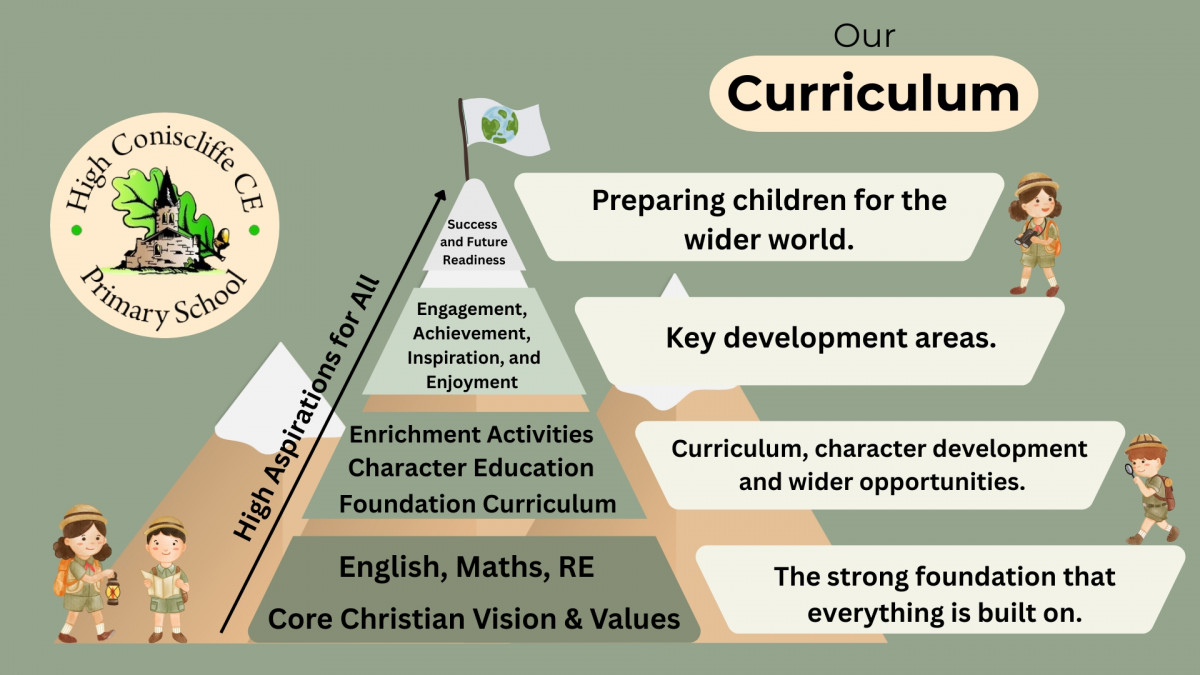
With our core Christian vision and values as the foundation of all that we do, we are committed to teaching a broad, balanced and aspirational curriculum that is accessible to all. We want our children to experience each curriculum area in an environment where curiosity, personal growth, leadership, and collaboration are central. We encourage our children to explore new ideas, grow in their understanding, and lead with confidence and kindness, while experiencing a holistic and inclusive curriculum. Our curriculum makes learning meaningful, engaging, and relevant across all subject areas, equipping children with the skills they need to thrive in an ever-changing world. We have designed our curriculum to ensure coherence and connectivity so that knowledge, skills and concepts are introduced, built on over time, revisited and assessed. We believe that a well-connected curriculum, rooted in Early Years will enable our children to grow intellectually, spiritually and emotionally. It will enable them to become increasingly knowledgeable and make sense of complex concepts that build on previous learning and experiences.
Each class timetable has been very carefully structured to maximise learning time. We provide a knowledge-rich curriculum for our children. Our subjects are taught discretely which enables children to build securely on previous knowledge and skills and enables them to become immersed in and develop depth of understanding within a subject.
Our curriculum provides children with memorable experiences, visits and visitors from which they can learn. It is designed to encourage them to view the world outside of High Coniscliffe with excitement and curiosity. Our class names encapsulate the ambition we have for our children and the character development we hope to achieve and by the time they leave High Coniscliffe, we want them to have developed into independent and confident learners who know about their community and the wider world and how they can make a positive contribution and make a difference.
We have developed a whole school long term curriculum map which is delivered across a two-year cycle to meet the needs of our mixed age-classes. This is continually reviewed to ensure that the chosen topics meet the needs of the children in each class. Each term, a curriculum overview is shared which has up to date information about what is being taught in each subject in each class. We will always build on children’s interests, current events (locally and wider afield) and other relevant ‘hooks’ into learning where appropriate to further enhance our long term plan.
Early Years Foundation Stage (EYFS) – Reception
The early-years education we offer our children is based on the following principles:
- It builds on what our children already know and can do;
- It ensures that no child is excluded or disadvantaged;
- It offers a structure for learning that has a range of starting points, content that matches the needs of young children, and activities that provide opportunities for learning both indoors and outdoors;
- It provides a rich and stimulating environment;
It acknowledges the importance of a full working partnership with parents and carers.

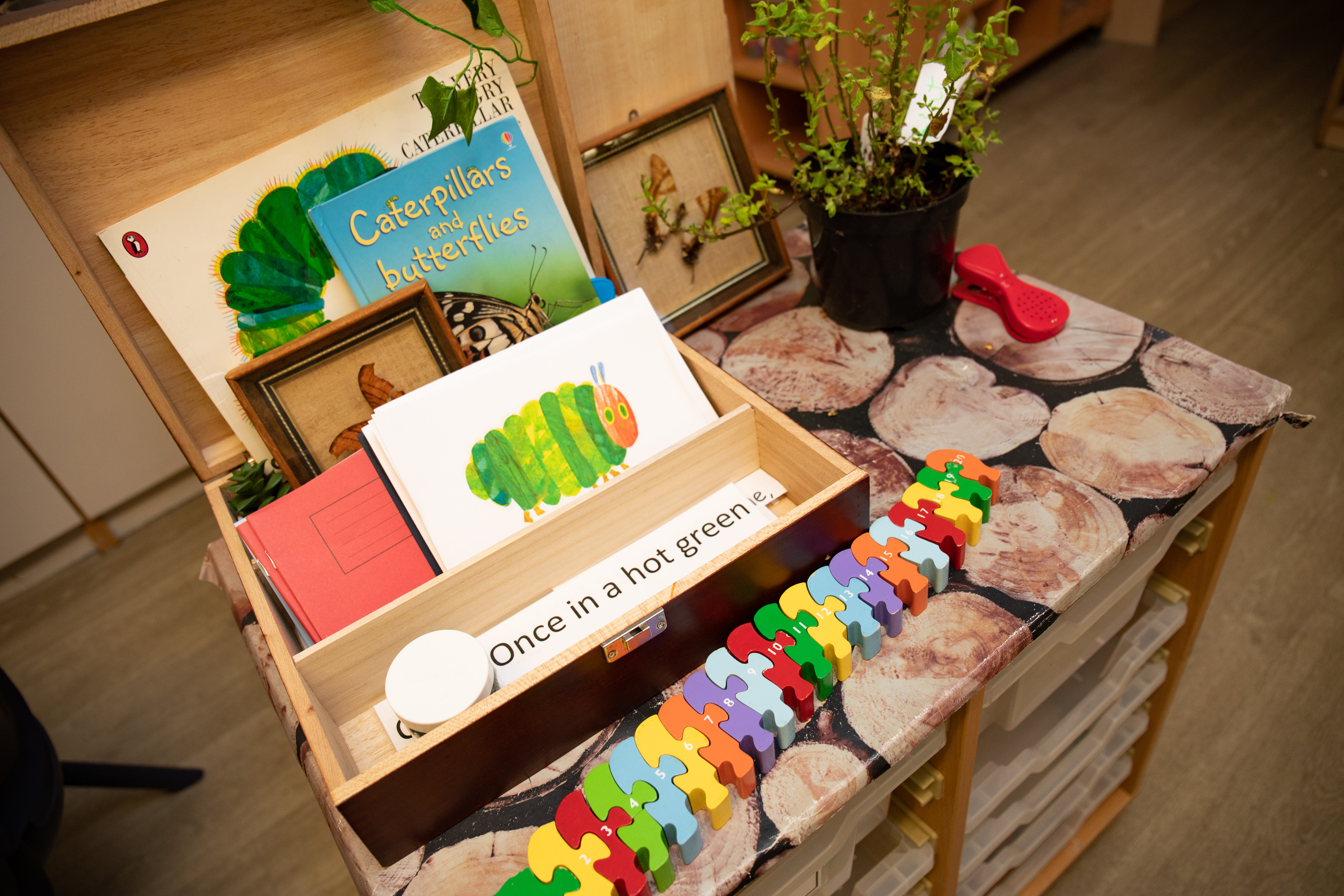
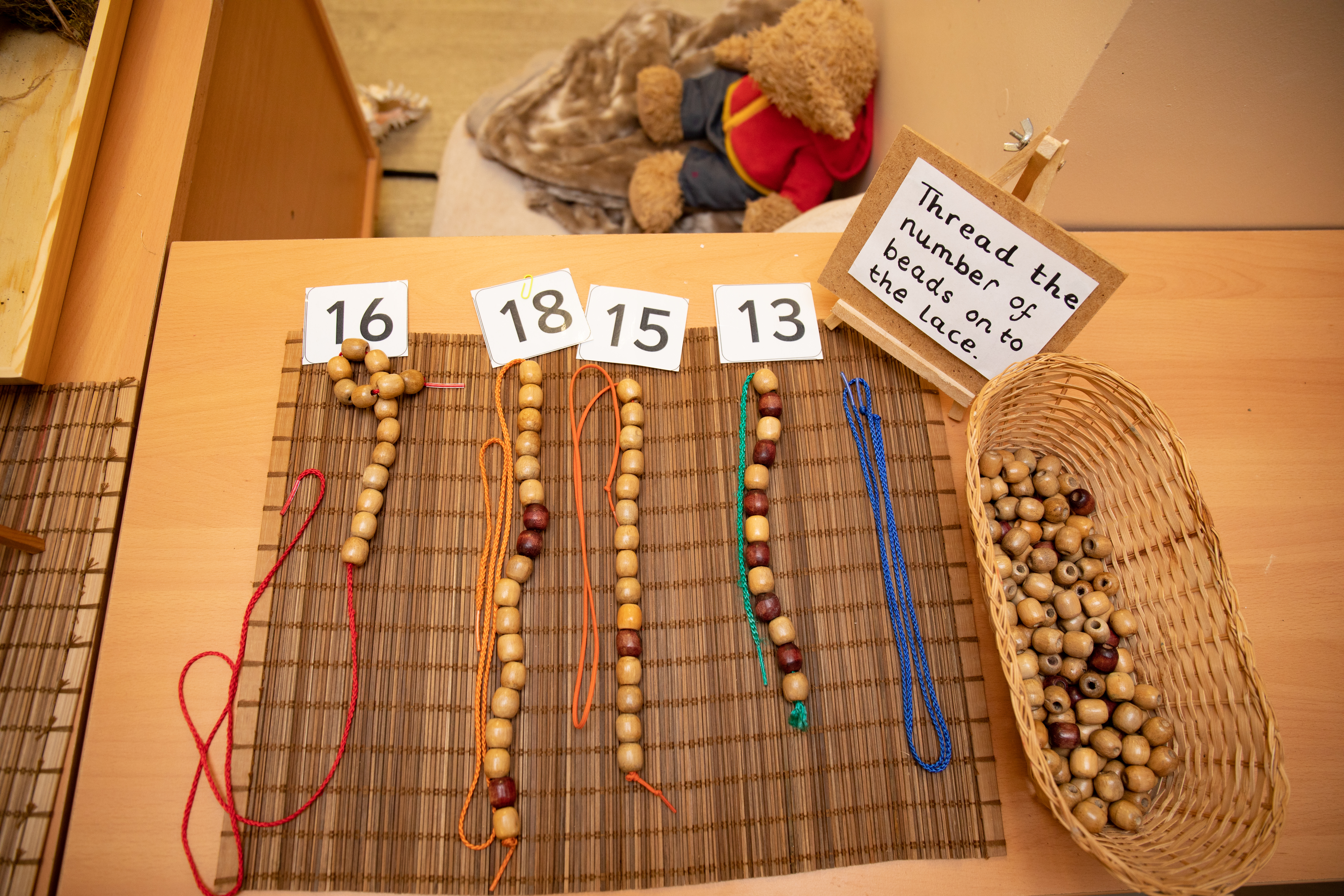


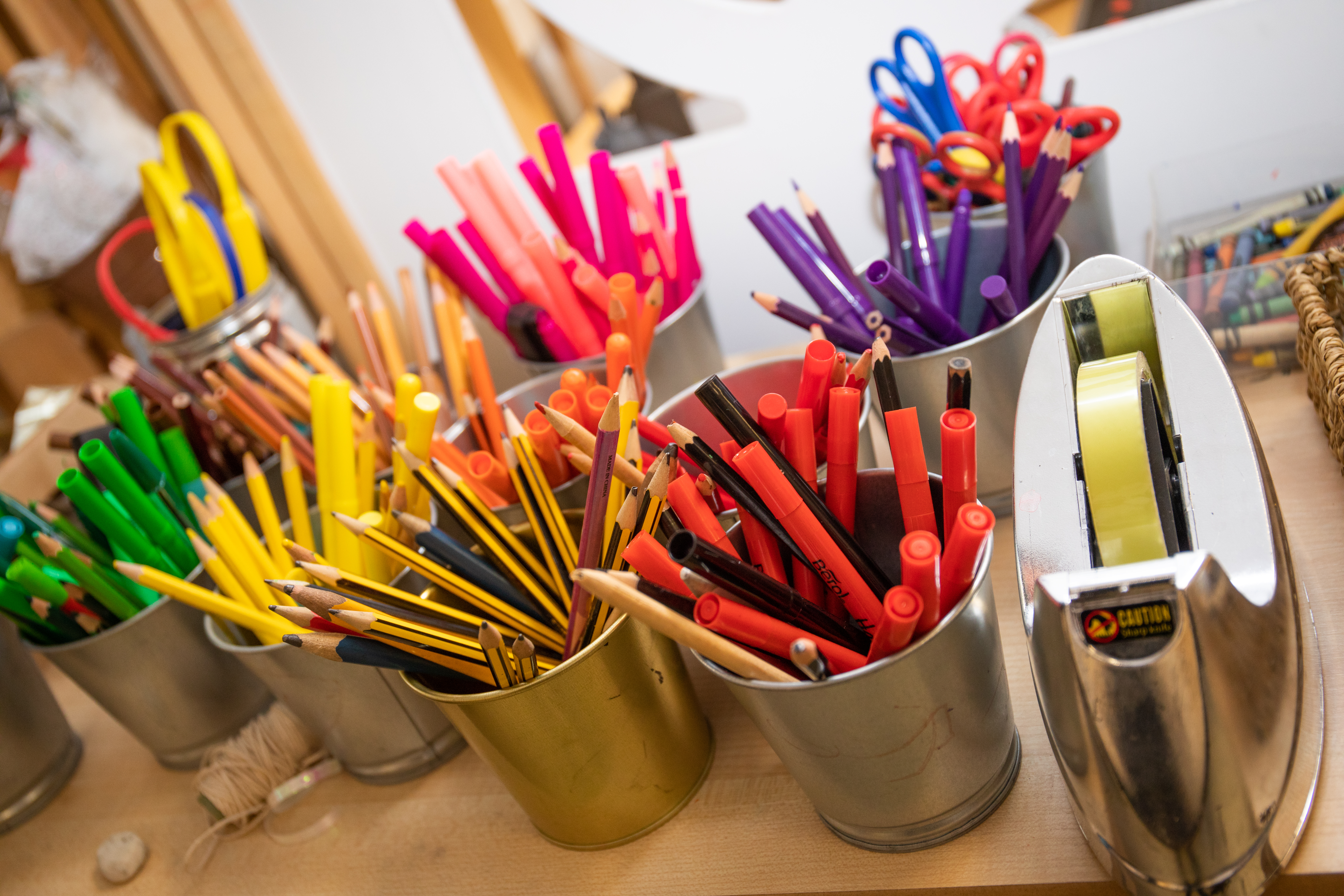

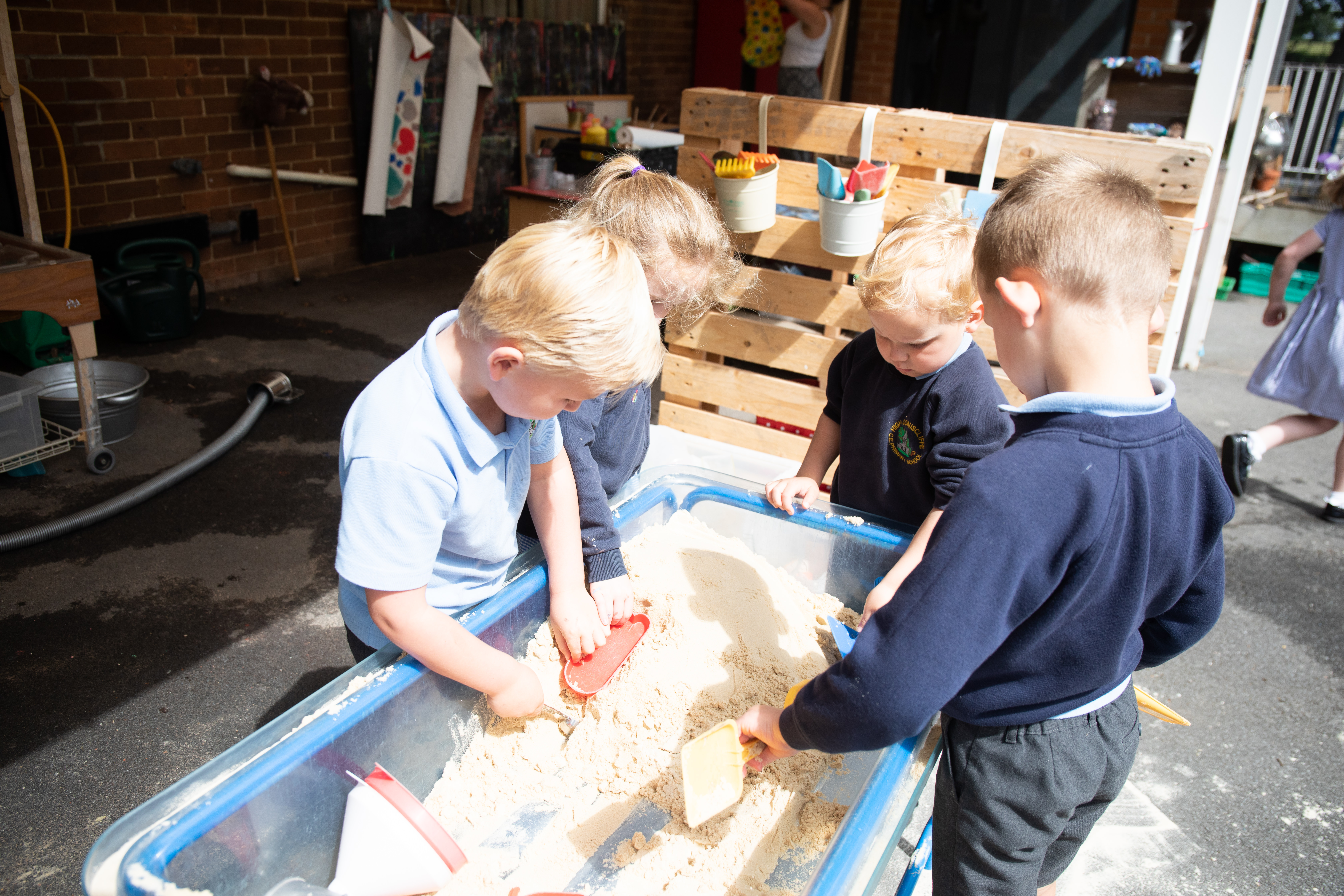
As the children transition into Year One and with support appropriate to their needs, the children’s subsequent learning remains deeply rooted in Early Years as they begin to learn within the discrete subjects of the National Curriculum. The following document shows the links as they move through the school:
Our Approach to Teaching Reading
As a school we aim to:
- Provide a rich and stimulating reading environment.
- Provide a robust foundation of the key skills of decoding texts through systematic teaching of phonics in the EYFS and Key Stage One.
- Enable children to read with confidence, accuracy, fluency, understanding and enjoyment.
- Foster an enthusiasm for and love of reading for life.
- Ensure that all children are taught to read at the appropriate level and that reading with a teacher is not simply an opportunity to practice.
- Identify accurate levels of attainment in reading for each child.
- Ensure that all children have an appropriate and challenging reading target set according to their reading level.
- Ensure that all children make rapid sustained progress in their development of reading skills.
- Develop comprehension skills of inference and deduction across a broad range of texts.
- Develop understanding of grammar and vocabulary within texts and the effect it has on the reader.
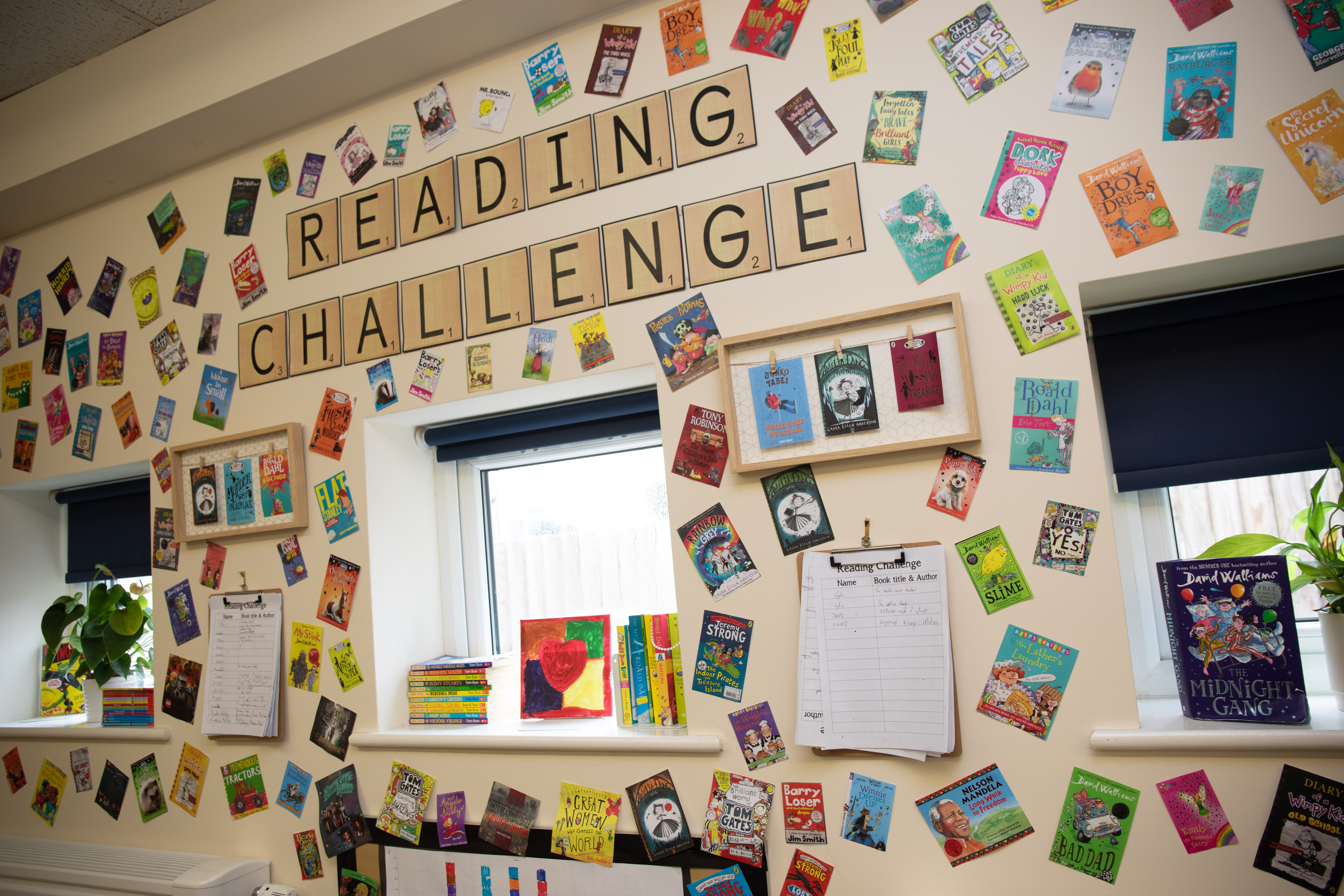
The teaching of reading across the schools falls into four categories, each with their own set of strategies:
- Reading for fluency
- Reading for pleasure
- Reading for knowledge
- Assessing comprehension levels
Progression in Phonics and Early Reading
We follow the Read Write Inc. programme of phonics to teach the children how to read. When teaching early reading, we ensure that there are ‘back and forth’ interactions between children and adults. The RWI model, ensures that the teaching strategies applied include the teacher thinking out loud and modelling new language for children, as well as rephrasing and extending what they say. The stories contain challenge words and power words which have ambitious vocabulary and the children are taught new vocabulary and encouraged to discuss and apply this in lessons and in talk throughout the school day. Listening skills are modelled for children and the use of the ‘silent stop’ signal alerts children to be ready to show good listening.
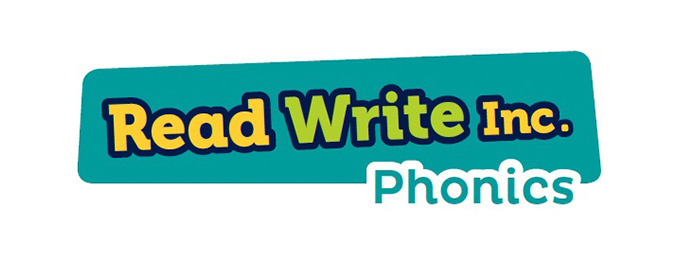
A range of feedback opportunities are utilised in lessons whereby children are given many opportunities to contribute to the lesson. Strategies such as ‘partner practice’, ‘choral feedback’, ‘popcorn’ and ‘take two’ are some examples of how we ensure full participation and encourage all children to fully engage, avoiding a ‘hands-up’ approach which could disengage some children as they might avoid putting up their hand due to lack of confidence, less developed oral skills or those new to speaking English as well as a perception that they may not be selected.
Daily storytimes play a vital part of the school day and are included into the daily timetable alongside phonics sessions. Carefully chosen stories which illicit strong responses and have a strong narrative that capture the children’s interest for multiple readings along with, poems and songs help to promote a love of reading for all with teachers reading aloud to the children on a daily basis.
In classes and around school we have a number of reading areas and ‘book nooks’ where the books themselves are at the heart. The children are taught to respect the books and take care of them and the areas which they belong.
When children are identified as needing extra support in reading, they are given extra opportunities in small groups or in a one-to-one interaction with the aim of them keeping up with what is expected of them at any given stage.
We follow the suggested progression of teaching through the RWI approach to teaching phonics. The children are regularly assessed and there are daily opportunities to consolidate prior learning, learn new content and to practice and apply what they have learnt.
We ensure that the books that children have access to for their home reading are closely matched to their phonics ability. We use the RWI Book Bag Books to consolidate learning in school at home along with other resources from the RWI phonics scheme of learning. The books are organised in order so that the children do not take home books which include any sounds which they have yet to learn.
We have a whole school approach to teaching phonics and when supporting the children with their early reading we have a systematic approach and all children and staff are familiar with the same terminology.
- The Children are first introduced to Speed Sounds Set 1 and have daily practice of these along with Word Time activities which focus on blending to read. The children are given a new sound to learn each day. They are also given a Speed Sounds book to take home to practice. They are also taught to read ‘Red’ tricky words on sight. As the children progress through the RWI programme, they read a range of words, ditties and then stories which are closely matched to their phonic ability. The children read words and stories in school at the appropriate level, consolidated with a home reading book of the same level. The children are regularly assessed to ensure that they are reading words and books at the correct level for their ability.
- When the children are ready, they are introduced to Set 2 and then Set 3 Speed Sounds and read words and stories containing these sounds. Again, they are given a home reading book to take home which consolidate these sounds. As the children gain further knowledge and skills in reading, the words and stories they read become more challenging and build on what they can do. As well as the mechanics of reading the words, there is a focus in developing vocabulary, comprehension, fluency and expression from the onset. Most importantly, we aim to develop a love of reading in every child.
- Once the children have completed the Read, Write Inc. scheme for home reading (with other corresponding home reading books matched to their level for consolidation if needed), they will then continue on through the rest of the home reading books, mainly consisting of Oxford Reading Tree titles and then onto a wider range of children’s fiction and non-fiction books banded using the ATOS levels (please see our ‘Approach to teaching reading’ document for more information).
Our Approach to Teaching Spelling
The RWI synthetic phonics scheme teaches handwriting, spelling and composition separately, gradually brining each skill together step-by-step.
From Year 2, children will build upon their phonetic understanding and will develop a broader knowledge of the English spelling system through the Spelling Shed scheme. This takes an evidence-based approach with the teaching of spelling strategies beyond phonics such as etymology, morphology, analogy, teaching spelling rules/patterns and orthographic mapping.
Further information about the scheme can be found here.
Our Approach to Teaching Mathematics
We use the White Rose scheme for Maths. The schemes of learning that we follow, are designed to be enjoyable, engaging and varied, to help pupils develop a love of learning and work towards mastery with differentiated resources. At the heart of the White Rose Maths resources and frameworks is the motto “Everyone Can Do Maths: Everyone Can!” — a slogan that we wholeheartedly agree with!
Adopting a White Rose Maths approach to teaching means making sure all children have the same opportunities to learn and the support they need to fully grasp concepts.
The philosophy behind White Rose Maths also focuses on making Maths fun for children and helping them to find enjoyment in number problems. Because when children are engaged in learning and enjoying Maths, that’s when lessons really sink in and deep learning happens.
By using White Rose Maths frameworks and guidance to adopt a Maths mastery approach, we strive to help all children achieve excellence in mathematics. No pupils are considered ‘low ability’ or allowed to feel like they ‘can’t do maths’. Instead, a positive ‘can-do’ attitude is encouraged and children are taught to enjoy working with numbers. Following the White Rose Maths approach enables building a deep understanding of topics, helping children become confident mathematicians who embrace mathematical challenges with a smile.
The White Rose Maths yearly frameworks outline which topics we cover and when. We ensure that there is an emphasis on revisiting learning and topics to encourage fluency.
The following policies show the methods we teach the children for the four operations:
Religious Education
RE is delivered as a core subject. We follow the Durham and Newcastle Agreed Syllabus for RE, with units on Christianity taught through Understanding Christianity.
The approach developed for Understanding Christianity is based on the use of core concepts of Christian belief, as expressed in the Bible and lived out in the lives of Christians today. The core concepts reflect a view that the Bible tells a ‘big story’ of the journey of God’s people. This begins with understanding and concepts of God, through the beauty of the created world then to the people of God as they journey through the Old Testament. We then continue the Big Story into the New Testament beginning with the birth of Emmanuel, the Incarnation (rooted in the prophecies and promise given to 3
the people of God). Jesus’ teaching then forms the basis of learning about the Gospels and how this continues to impact daily life today. We then move on to an understanding of the crux of the Christian faith, as Jesus our Saviour goes to the cross and is raised to life – the Salvation of Christian people. Finally, we move forward and recognise our place living in the Kingdom of God. The approach in RE is to revisit the core concepts throughout the different key stages, deepening pupils’ understanding and making the links to this overall Big Story.
The teaching and learning approach enables pupils to engage with a variety of Bible texts in order to explore how Christians understand the core concepts. It explores ways in which Christians might live in the light of these texts, within the Christian community and in their individual lives. It allows pupils to reflect on some of the questions and puzzles that arise from the
Bible, and to consider any implications or connections with their own lives and ways of understanding the world.
Other faiths, and ways of thinking (including atheism and agnosticism) are explored through further units exploring a range of themes, big questions and also looking at the lives of people following other faiths. The same approach is used, where we make sense, make connections and understand impact in order to make a considered response.
50% of RE Curriculum time is focussed on Christianity. The remaining 50% is focussed on other world views, both religious and non-religious. The major world religions of Islam and Judaism are taught in both KS1 and KS2. With Hinduism and Sikhism also taught in KS2.
In EYFS and KS1, pupils will spend a minimum of 1hr per week on RE. In KS2, pupils will spend a minimum of 1hr and 15 mins on RE.
Understanding Christianity
What do we aim to do?
To enable pupils to know about and understand Christianity as a living world faith, by exploring core theological concepts.
To enable pupils to develop knowledge and skills in making sense of biblical texts and understanding their impact in the lives of Christians.
To develop pupils’ abilities to connect, critically reflect upon, evaluate and apply their learning to their own growing understanding of religion and belief (particularly Christianity), of themselves, the world and human experience.
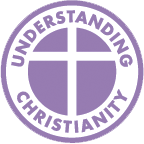
What is our approach?
The approach developed for Understanding Christianity is based on the use of core concepts of Christian belief, as expressed in the Bible and lived out in the lives of Christians today. The core concepts reflect a view that the Bible tells a ‘big story’ of salvation. The approach in RE is to revisit the core concepts throughout the different key stages, deepening pupils’ understanding and making the links to the overall ‘big story’ or ‘salvation narrative’.
This is not the only way to describe Christian thought and practice, and of course there is real diversity within Christianity itself, but it sets a good foundation for understanding the heart of the Christian faith.
The teaching and learning approach enables pupils to engage with a variety of Bible texts in order to explore how Christians understand the core concepts. It explores ways in which Christians might live in the light of these texts, within the Christian community and in their individual lives. It allows pupils to reflect on some of the questions and puzzles that arise from the Bible, and to consider any implications or connections with their own lives and ways of understanding the world.
RSHE
A CHARTER FOR FAITH SENSITIVE AND INCLUSIVE RELATIONSHIPS, SEX AND HEALTH EDUCATION
At High Coniscliffe CE Primary School, we seek to provide Relationships, Sex and Health Education (RSHE), which will enable all pupils to flourish.
We commit:
- To work in partnership with parents and carers. This will involve dialogue with parents and carers through all stages of policy development as well as discussing the resources used to teach their children and how they can contribute at home. It must, however, be recognised that the law specifies that what is taught and how it is taught is ultimately a decision for the school.
- That RSHE will be delivered professionally. It will be led, resourced and reported to parents in the same way as any other subject. There will be a planned programme delivered in a carefully sequenced way. Staff will receive regular training in RSHE. Any expert visitors or trainers invited into school to enhance and supplement the programme will be expected to respect the school’s published policy for RSHE.
- That RSHE will be delivered in a way that affords dignity and shows respect to all who make up our diverse community. It will not discriminate against any of the protected characteristics in the Equality Act[1] and will be sensitive to the faith and beliefs of those in the wider school community. RSHE will seek to explain fairly the tenets and varying interpretations of religious communities on matters of sex and relationships and teach these viewpoints with respect. It will value the importance of faithfulness as the underpinning and backdrop for relationships. It will encourage pupils to develop the skills needed to disagree without being disagreeable, to appreciate the lived experience of other people and to live well together.
- That RSHE will seek to build resilience in our pupils to help them form healthy relationships, to keep themselves safe and resist the harmful influence of pornography in all its forms. It will give pupils opportunities to reflect on values and influences including their peers, the media, the internet, faith and culture that may have shaped their attitudes to gender, relationships and sex. It will promote the development of the wisdom and skills our pupils need to make their own informed decisions.
- That RSHE will promote healthy resilient relationships set in the context of character and virtue development. It will reflect the vision and associated values of the Trust, promote reverence for the gift of human sexuality and encourage relationships that are hopeful and aspirational. Based on the Trust’s values it will seek to develop character within a moral framework based on virtues such as honesty, integrity, self-control, courage, humility, kindness, forgiveness, generosity and a sense of justice but does not seek to teach only one moral position.
- That RSHE will be based on honest and medically accurate information from reliable sources of information, including about the law and legal rights. It will distinguish between different types of knowledge and opinions so that pupils can learn about their bodies and sexual and reproductive health as appropriate to their age and maturity.
- To take a particular care to meet the individual needs of all pupils including those with special needs and disabilities. It will ensure that lessons and any resources used will be accessible and sensitive to the learning needs of the individual child. We acknowledge the potential vulnerability of pupils who have special needs and disabilities(SEND) and recognise the possibilities and rights of SEND pupils to high quality relationships and sex education.
- To seek pupils’ views about RSHE so that the teaching can be made relevant to their lives. It will discuss real life issues relating to the age and stage of pupils, including friendships, families, faith, consent, relationship abuse, exploitation and safe relationships online. This will be carefully targeted and age appropriate based on a teacher judgment about pupil readiness for this information in consultation with parents and carers.
[1] The protected characteristics are age, disability, gender reassignment, race, religion or belief, sex, sexual orientation, marriage and civil partnership and pregnancy and maternity.
Relationships Education Overview
Families and people who care for me
By the end of primary school, pupils will know:
- That families are important for them growing up because they can give love, security and stability.
- The characteristics of healthy family life, commitment to each other, including in times of difficulty, protection and care for children and other family members, the importance of spending time together and sharing each other’s lives.
- That others’ families, either in school or in the wider world, sometimes look different from their family, but that they should respect those differences and know that other children’s families are also characterised by love and care.
- That stable, caring relationships, which may be of different types, are at the heart of happy families, and are important for children’s security as they grow up.
- That marriage represents a formal and legally recognised commitment of two people to each other which is intended to be lifelong.
- How to recognise if family relationships are making them feel unhappy or unsafe, and how to seek help or advice from others if needed.
Caring friendships
By the end of primary school, pupils will know:
- How important friendships are in making us feel happy and secure, and how people choose and make friends.
- The characteristics of friendships, including mutual respect, truthfulness, trustworthiness, loyalty, kindness, generosity, trust, sharing interests and experiences, and support with problems and difficulties.
- That healthy friendships are positive and welcoming towards others, and do not make others feel lonely or excluded.
- That most friendships have ups and downs, but that these can often be worked through so that the friendship is repaired or even strengthened, and that resorting to violence is never right.
- How to recognise who to trust and who not to trust.
- How to judge when a friendship is making them feel unhappy or uncomfortable.
- How to manage conflict.
- How to manage different situations and how to seek help from others if needed.
Respectful relationships
By the end of primary school, pupils will know:
- The importance of respecting others, even when they are very different from them (for example, physically, in character, personality or backgrounds), make different choices, or have different preferences or beliefs.
- Which practical steps they can take in a range of different contexts to improve or support respectful relationships.
- The conventions of courtesy and manners.
- The importance of self-respect and how this links to their own happiness.
- That in school and wider society they can expect to be treated with respect by others, and that in turn they should show due respect to others, including those in positions of authority.
- About the different types of bullying (including cyberbullying), the impact of bullying, responsibilities of bystanders to report bullying to an adult, and how to seek help.
- What a stereotype is, and how they can be unfair, negative or destructive.
- The importance of permission-seeking and giving in relationships with friends, peers and adults.
Online relationships
By the end of primary school, pupils will know:
- That people sometimes behave differently online, including pretending to be someone they are not.
- That the same principles apply to online relationships as to face-to-face relationships, including the importance of respect for others online, even when we are anonymous.
- The rules and principles for keeping safe online.
- How to recognise harmful content and contact online, and how to report these.
- How to critically consider their online friendships and sources of information.
- The risks associated with people they have never met.
- How information and data is shared and used online.
Being safe
By the end of primary school, pupils will know:
- What sorts of boundaries are appropriate in friendships with peers and others – including in a digital context.
- About the concept of privacy and the implications of it for both children and adults.
- That it is not always right to keep secrets if they relate to being safe.
- That each person’s body belongs to them, and the differences between appropriate and inappropriate or unsafe physical, and other, contact.
- How to respond safely and appropriately to adults they may encounter (in all contexts, including online) who they do not know.
- How to recognise and report feelings of being unsafe or feeling bad about any adult.
- How to ask for advice or help for themselves and others, and to keep trying until they are heard.
- How to report concerns or abuse, and the vocabulary and confidence needed to do so.
- Where to seek advice, for example, from their family, their school and other sources.
Physical Health and Mental Wellbeing Overview
Mental wellbeing
By the end of primary school pupils will know:
- That mental wellbeing is a normal part of daily life, in the same way as physical health.
- That there is a normal range of emotions, e.g. happiness, sadness, anger, fear, surprise and nervousness.
- The scale of emotions that humans experience in response to different experiences and situations.
- How to recognise and talk about their emotions, including having a varied vocabulary of words to use when talking about their own and others’ feelings.
- How to judge whether what they are feeling and how they are behaving is appropriate and proportionate.
- The benefits of physical exercise, time outdoors, community participation, and voluntary and service-based activity on mental wellbeing and happiness.
- Simple self-care techniques, including the importance of rest, time spent with friends and family, and the benefits of hobbies and interests.
- How isolation and loneliness can affect children and that it is very important they discuss their feelings with an adult and seek support.
- That bullying (including cyberbullying) has a negative and often lasting impact on mental wellbeing.
- Where and how to seek support (including recognising the triggers for seeking support), extending to who in school they should speak to if they are worried about themselves or others.
- That it is common to experience mental ill health and, for the many people who do, the problems can be resolved if the right support is made available, especially if accessed early enough.
Internet safety and harms
By the end of primary school, pupils will know:
- That for most people, the internet is an integral part of life and has many benefits.
- About the benefits of rationing time spent online.
- The risks of excessive time spent on electronic devices.
- The impact of positive and negative content online on their own and others’ mental and physical wellbeing.
- How to consider the effect of their online actions on others.
- How to recognise and display respectful behaviour online.
- The importance of keeping personal information private.
- Why social media, some computer games and online gaming, for example, are age-restricted.
- That the internet can also be a negative place where online abuse, trolling, bullying and harassment can take place, which can have a negative impact on mental health.
- How to be a discerning consumer of information online, including understanding that information (inclusive of that from search engines) is ranked, selected and targeted.
- Where and how to report concerns and get support with issues online.
Physical health and fitness
By the end of primary school, pupils will know:
- The characteristics and mental and physical benefits of an active lifestyle.
- The importance of building regular exercise into daily and weekly routines and how to achieve this, for example by walking or cycling to school, a daily active mile, or other forms of regular, vigorous exercise.
- The risks associated with an inactive lifestyle, including obesity.
- How and when to seek support, including which adults to speak to in school if they are worried about their health.
Healthy eating
By the end of primary school, pupils will know:
- What constitutes a healthy diet, including an understanding of calories and other nutritional content.
- The principles of planning and preparing a range of healthy meals.
- The characteristics of a poor diet and risks associated with unhealthy eating, including obesity, and other behaviours, e.g. the impact of alcohol on diet or health.
Drugs alcohol and tobacco
By the end of primary school, pupils will know:
- The facts about legal and illegal harmful substances and associated risks, including smoking, alcohol use and drug-taking.
Health and prevention
By the end of primary school, pupils will know:
- How to recognise early signs of physical illness, such as weight loss or unexplained changes to the body.
- About safe and unsafe exposure to the sun, and how to reduce the risk of sun damage, including skin cancer.
- The importance of sufficient good-quality sleep for good health, and that a lack of sleep can affect weight, mood and ability to learn.
- About dental health and the benefits of good oral hygiene and dental flossing, including regular check-ups at the dentist.
- About personal hygiene and germs including bacteria and viruses, how they are spread and treated, and the importance of hand washing.
- The facts and science relating to immunisation and vaccination.
Basic first aid
Although covered within earlier year groups, by the end of primary school, pupils will know:
- How to make a clear and efficient call to emergency services if necessary.
- Concepts of basic first-aid, for example dealing with common injuries, including head injuries.
Changing adolescent body
By the end of primary school, pupils will know:
- Key facts about puberty and the changing adolescent body, particularly from age 9 through to age 11, including physical and emotional changes.
- About menstrual wellbeing and key facts relating to the menstrual cycle.
History





Science
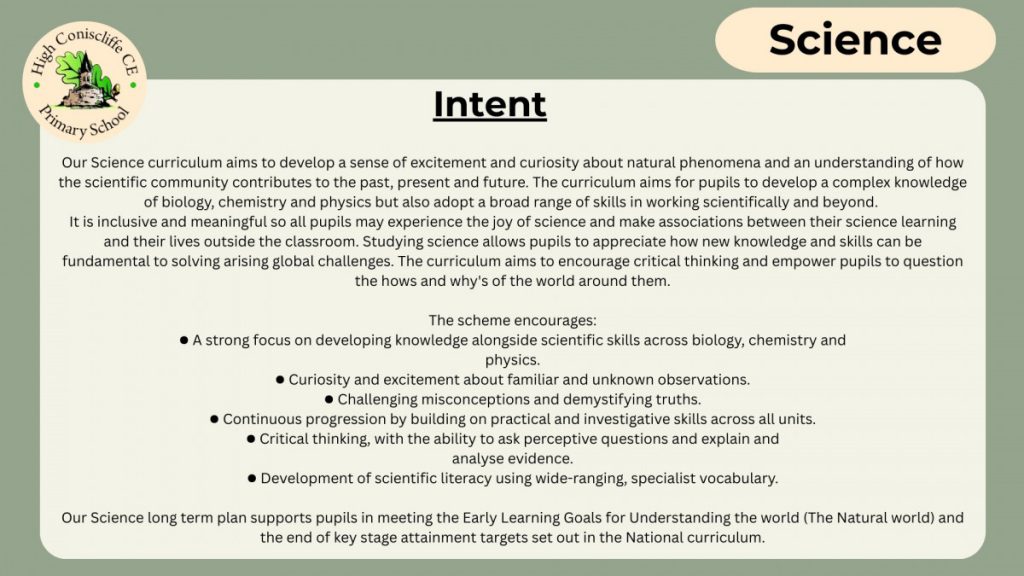
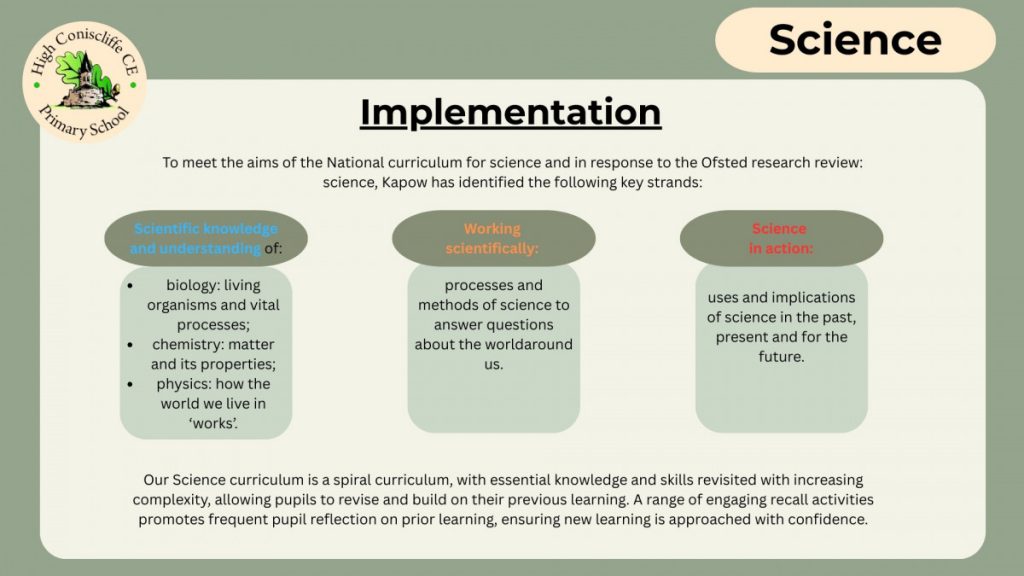
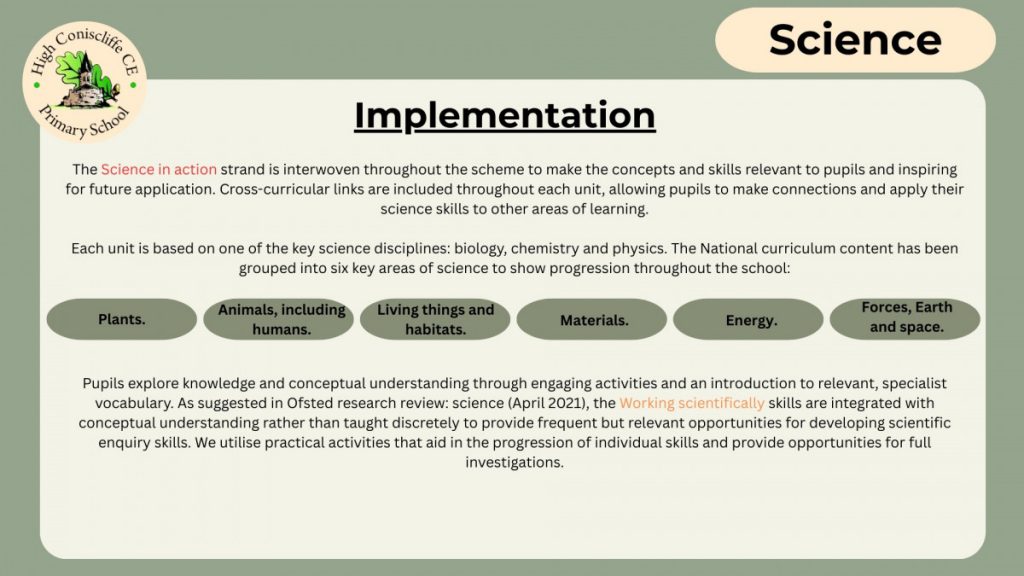
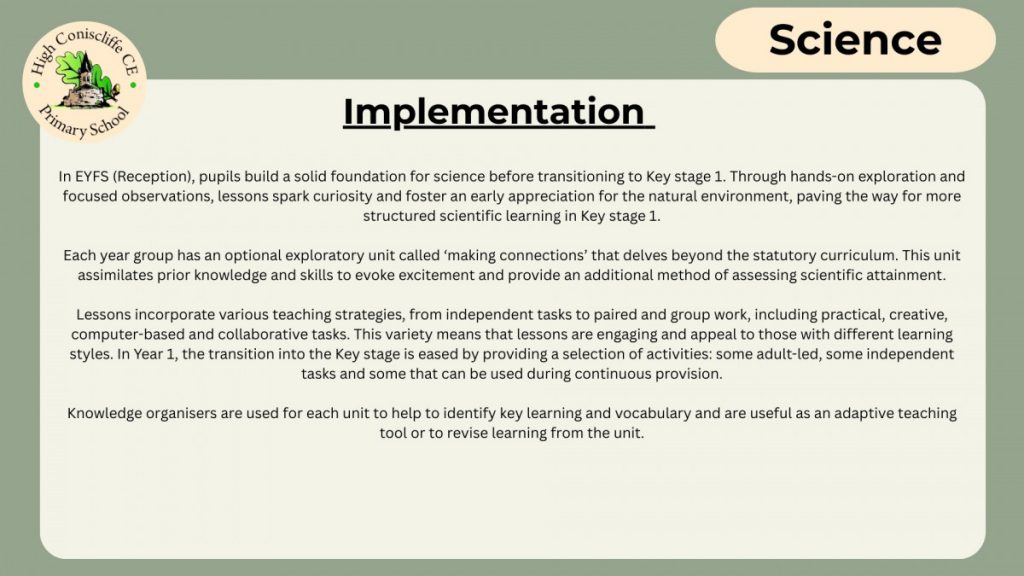
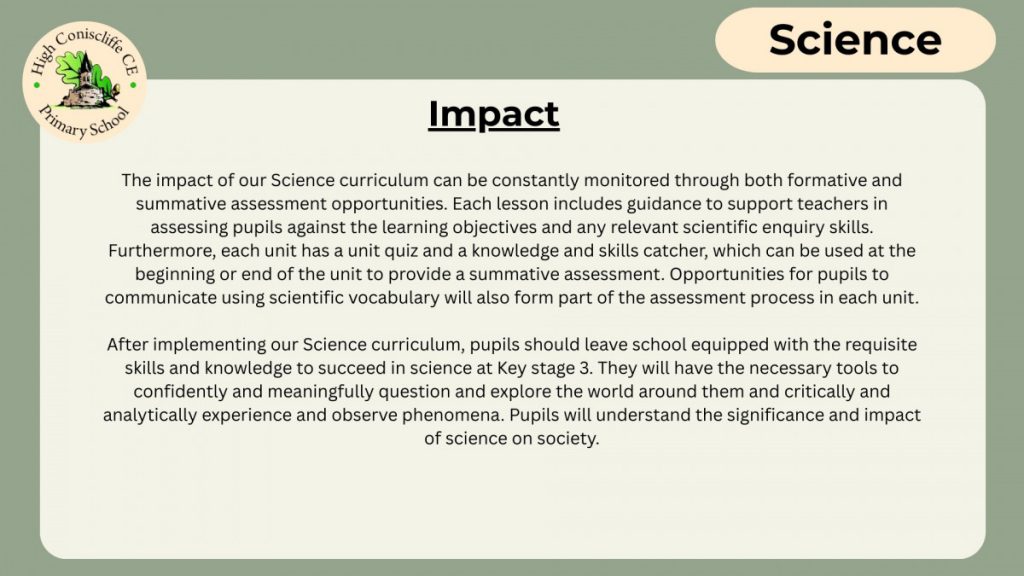
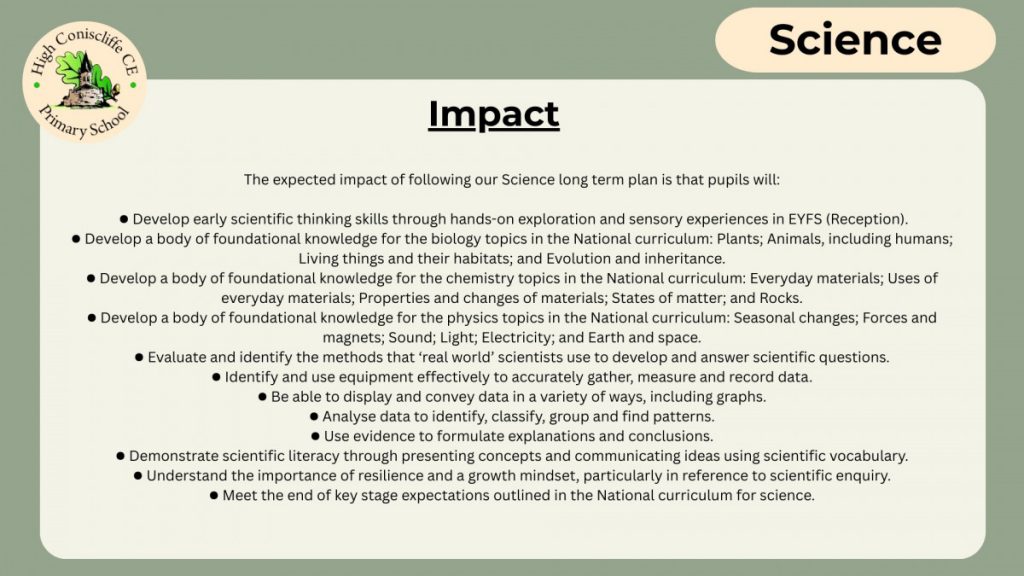
Art and Design
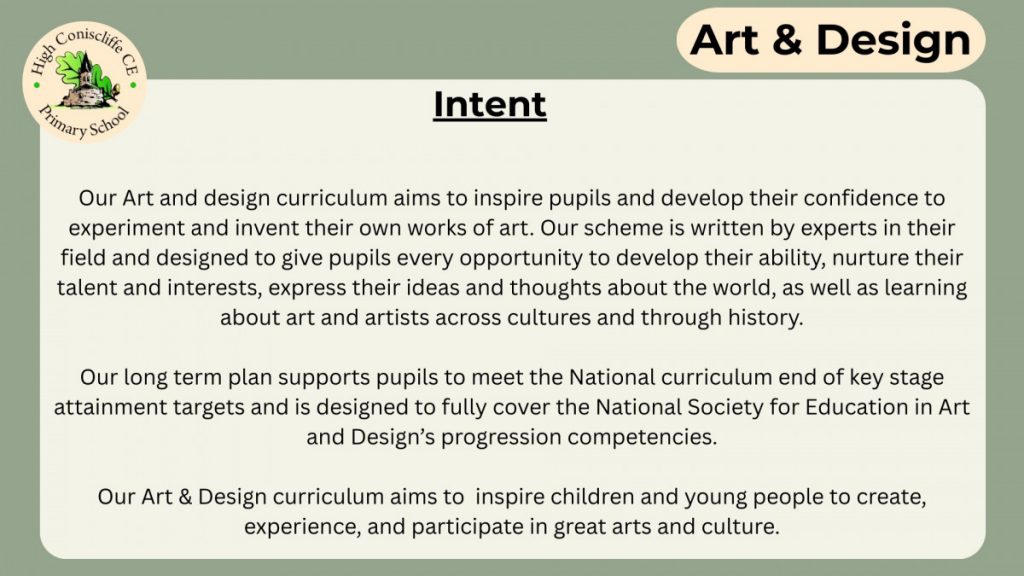
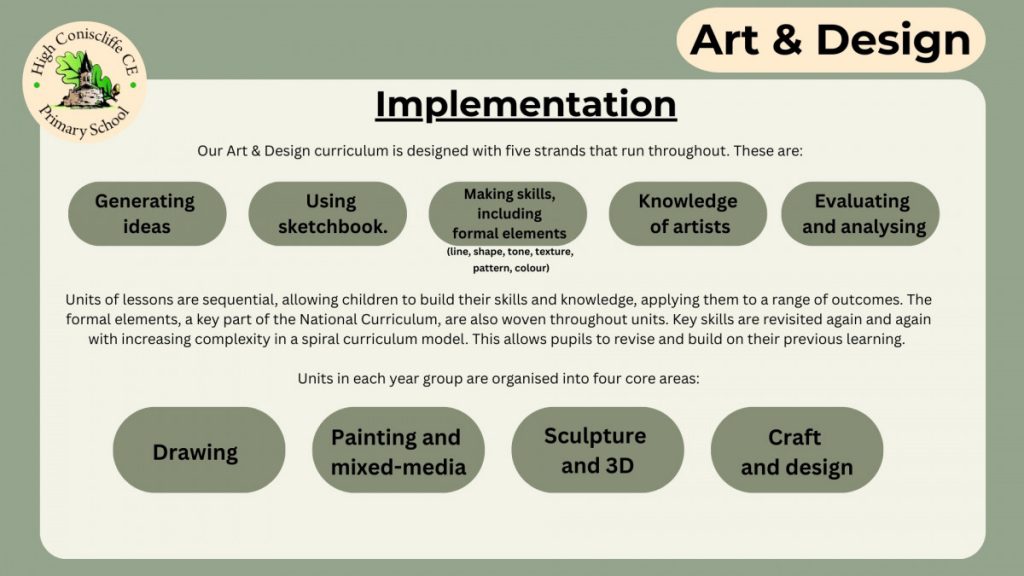
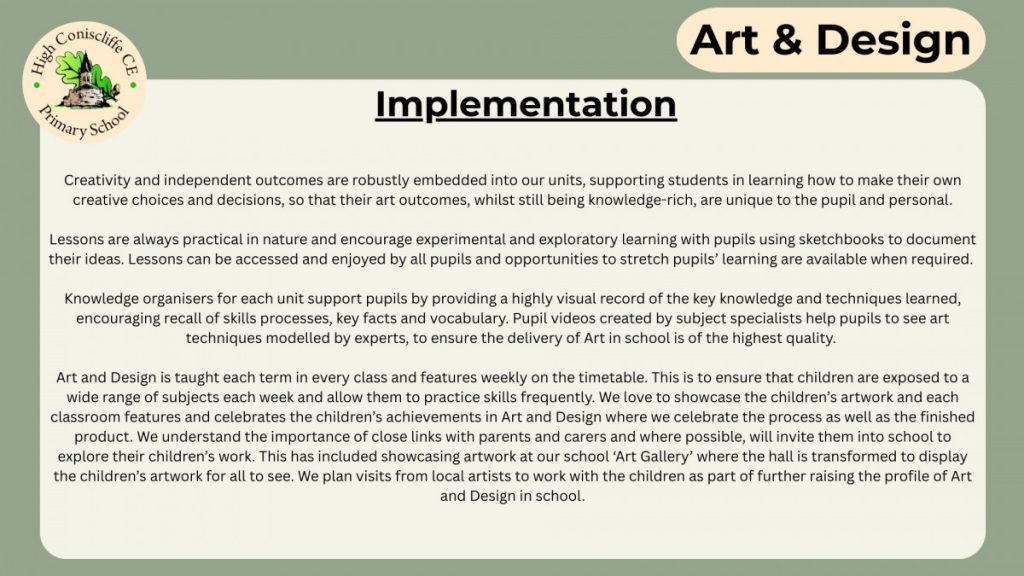
Design technology
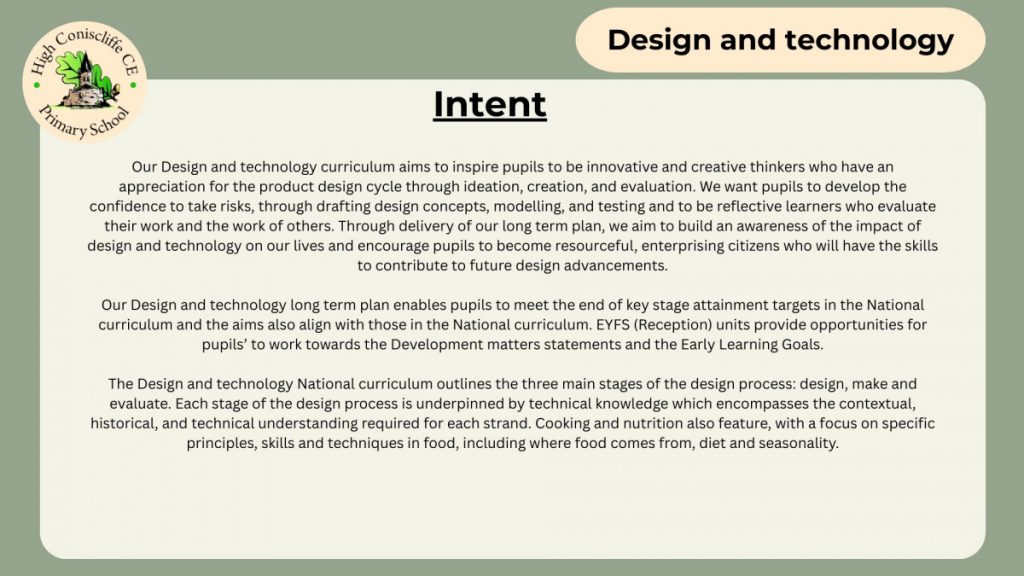


If you would like to find out any further information about the curriculum in school, please speak to your child’s class teacher or with Mr Toner or Mrs Boyce, who will be happy to discuss this with you.
Further information about the National Curriculum can also be found here.
